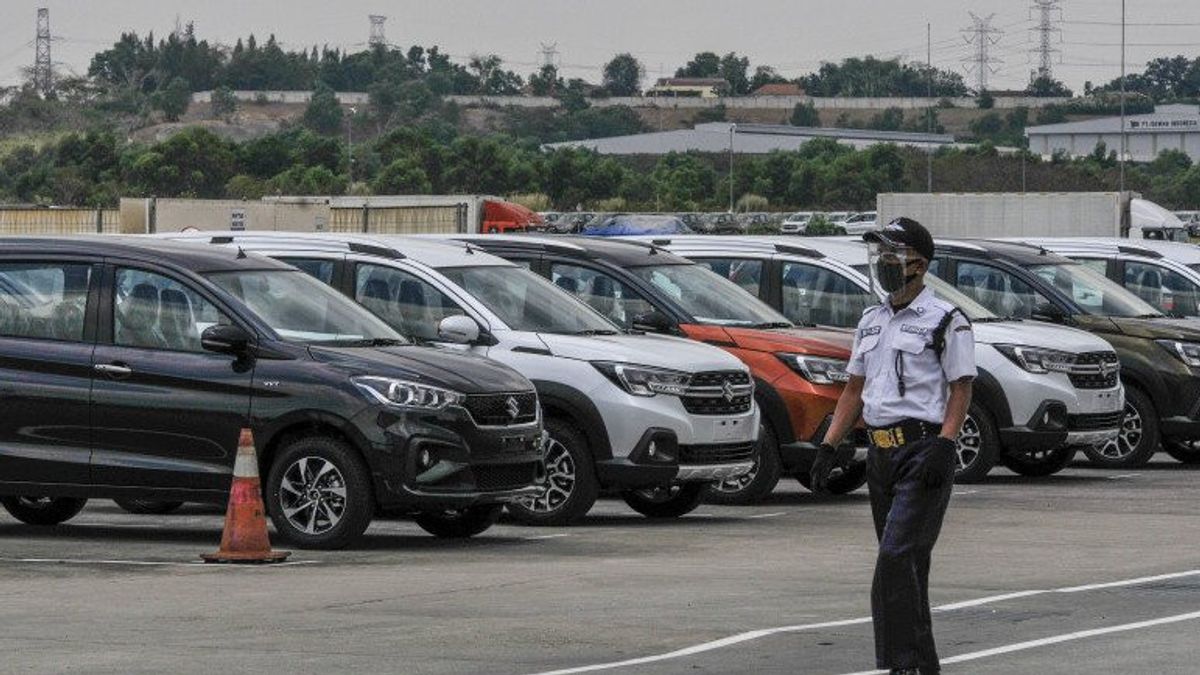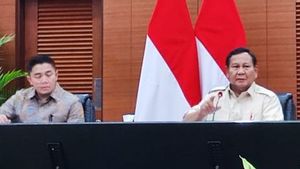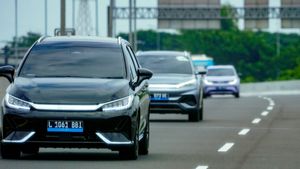JAKARTA - The extension of the PPnBM relaxation for four-wheeled motor vehicles announced by the government recently was positively welcomed by the automotive industry, which is then preparing with various strategies to boost production as demand for cars is expected to continue to grow.
"With this VAT extension, vehicle orders will increase again and our biggest challenge is to be able to produce as many vehicles as possible so that consumers can receive them as quickly as possible," said Director of Marketing and Sales and Business Innovation of PT Honda Prospect Motor (HPM) Yusak Billy, quoted from Between, Monday 21 June.
However, before that, his party is still waiting for the legal regulations regarding the issuance of the Minister of Finance's regulation regarding the extension of the PPnBM relaxation.
"We are still waiting until all the legal instruments as the legal basis are released first," said Billy.
He admitted that since the relaxation of PPnBM was implemented in March, Honda's car sales have increased. HPM retail sales in January amounted to 7,068 units and in February 2021 it reached 6,018 units, then from March it rose to 10,048 units and April rose to 10,189 units.
Then in May it fell to 8,538 units. Even though sales in May were lower than April, they were still higher than in January and February before the relaxation of PPnBM took effect.
"Sales in May fell due to fewer jobs than April, due to Lebaran," said Billy.
To anticipate the demand for cars that continues to grow due to the extended PPnBM relaxation, his party has carried out a number of strategies, including increasing production.
"The strategy is that we will carry out production at full capacity following existing processes and component availability," said Billy.
The same thing was stated by the Marketing Director of PT Toyota Astra Motor (TAM) Anton Jimmi Suwandy. He said the extension of the relaxation of the automotive PPnBM would make the car market in Indonesia move dynamically.
"Demand will be better," he said
For this reason, his party will try to produce as much Toyota cars as possible, as well as speed up logistics and distribution so that the waiting time for receiving vehicles by consumers is not too long.
Anton admitted that currently the average waiting period for vehicle deliveries is around two months, because the high demand is not commensurate with the speed of production.
"Production has even been doing overtime and working on weekends," said Anton.
The English, Chinese, Japanese, Arabic, and French versions are automatically generated by the AI. So there may still be inaccuracies in translating, please always see Indonesian as our main language. (system supported by DigitalSiber.id)













